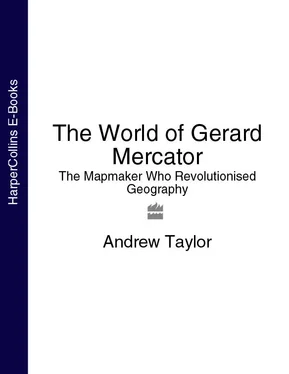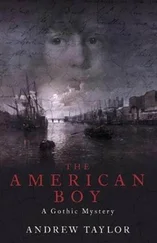The old world of the Catholic Church had given him security, and for all the reformist leanings, the innovative thinking, and the fascination with new skills and techniques that would mark his adult life, he never lost his instinctive sense that stability would be found in the past, in the way things had always been.
Unlike many of the Brethren’s charges, however, Gerard still had no ambition for a prosperous and honorable career in the Church like his great-uncle’s. The small boy remarkable for the dedication with which he closeted himself with his books became a serious and sober eighteen-year-old, with the prospect of a life dedicated to study. University life, just as much as that of the cloister, could offer support and a place to belong. The rich endowments and charitable foundations of the forty-three colleges of the University of Leuven meant that, as an impoverished but talented student, he could be excused payment of any fees there. *Although there were no formal requirements for admission, a prospective student would have to convince the doctors of his college that he was adequately prepared for the demanding course of study that the university would provide. 7Gerard’s record of study at ’s Hertogenbosch, together with the patronage and recommendation of his uncle, would have been enough to do that. He was ready to take a place in the ancient university.
Chapter Five At the College of the Castle
JOINING THE UNIVERSITY of Leuven was a solemn moment, a commitment like joining a monastery. On August 29, 1530, Gerard de Cremer knelt before the rector, Pierre de Corte – a man who would later prove his courage and friendship by standing up to the Inquisition on his former pupil’s behalf – to take the oath of matriculation, the pupil’s hands clasped between the master’s in prayer and supplication. The university was a cosmopolitan place, with more than five thousand students and scholars from France, Germany, England, Scotland, and the farthest reaches of Europe – enough to create their own distinct community. The Faculty of Arts, which Gerard joined, was divided into four colleges scattered through the town. The Colleges of the Pig, the Lily, and the Hawk were all named after ancient houses in Leuven, while the College of the Castle, in the street that led up to the duke’s old residence, was where Mercator received his board and lodging and most of his tuition.
When Duke John IV of Brabant had applied for papal approval to found the university early in the fifteenth Century, Leuven, some twenty-five miles southeast of Rupelmonde, was in decline. Many of the weavers whose labors had made it prosperous had left for England, frightened by the latest spasm of riots and fighting, and attracted by the lure of better profits in the growing English wool trade. Other cities had flourishing universities: Bologna, Paris, and Oxford had been attracting students for two centuries or more, and similar institutions were opening all over northern Europe. France had twenty universities in the fifteenth century, and the German-speaking countries about the same. A new university in Leuven brought not only prestige to the duke but prosperity to the town.
By the early sixteenth century, its reputation was growing. Its former rector, Nicolas Vernulaeus, 1wrote a history of the university that described a peaceful academic town, with quiet fields and vineyards sheltered from the north winds by the hills around, and with well-swept and respectable houses – the very place, he enthused, for students seeking calm to pursue their studies. Even Erasmus had found it more congenial than the grammar school at ’s Hertogenbosch. Its students, he observed, were well taught, courteous, and mature. “No-one could graduate at Leuven without knowledge, manners, and age,” he declared. He had written to assure a friend: “Its agreeable and healthy climate is conducive to quiet and peaceful study; no other university can rival its intellectual life, nor the number and quality of its academic staff.” 2
The establishment of the university, by attracting scholars and businesses, had played its part in the rejuvenation of Leuven, and there was clearly much life in the town beyond the college walls. The university authorities took the possibility of youthful high spirits seriously enough to set down formal statutes banning students from bearing arms, dicing and gaming in public taverns, or even walking the streets after eight o’clock at night, and their rules were stricter still inside the college. Gerard apparently reveled in the austere, contemplative life of fasting, abstinence, and strict obedience to the pater of the college. The sole official record of his time at Leuven is his inscription as a “poor student” in the books of the College of the Castle, but his friends and contemporaries all spoke of a dedicated and high-minded academic, concentrating almost obsessively on his work.
In that society, at least, there should have been no shame in his poverty. But even if the somber, monkish gown, which all the university’s pupils wore, 3disguised the differences between rich and poor, there was little fraternization between them. They all ate in the same hall, but the rich took the high table, while the poor sat at the far end of the hall; the rich students lived in private rooms, while the poor shared the dormitory in the College of the Castle. Few friendships crossed such a divide, but Mercator would have known the names of his rich colleagues, and one in particular would resonate for the rest of his life: Antoine Perrenot de Granvelle, the son of Charles V’s trusted chancellor, Nicholas Perrenot de Granvelle, was starting on his rise to power.
It was customary in scholastic circles, even among poor students, to add dignity to one’s name by translating it into Latin. Gerard’s schoolmaster at ’s Hertogenbosch, Georgius Macropedius, had started life as Joris van Lanckvelt. Gerrit Gerritszoon had already become known as the humanist Desiderius Erasmus Roterodamus, and Mercator’s near contemporary Andries van Wesel would win fame as the anatomist and humanist Andreas Vesalius. The sonorous, Latinized Mercator, or merchant, suited Gerard’s own ambitions much better than de Cremer – pedlar in the vulgar Flemish. In choosing his new name as he started on his career at Leuven, he looked back to the place of his birth and the formative years of his childhood: Gerardus Mercator Rupelmundanus was born.
The rigid timetable of his days was punctuated, as it had been in ’s Hertogenbosch, by celebrations of the Mass, and ran from dawn to dusk, with a brief rest period in the afternoon. His course of studies in the university’s Faculty of Arts was essentially the same logic, physics, metaphysics, mathematics, rhetoric, and moral philosophy that students had tackled for centuries, with attention fastened as firmly on the learning of hundreds of years ago as it had been at ’s Hertogenbosch. Observation, measurement, and independent thought were all dangerous steps on the road to heresy. First among the ancient masters was Aristotle, and it was expressly forbidden even to question his teaching.
The eighteen-hundred-year-old writings of the pre-Christian Greek philosopher were used expressly to bolster and justify the position of the Catholic Church as guardian of thought and theology. The statutes of the university were strict and unambiguous about how religion, philosophy, and natural science should be approached: “You will uphold the teaching of Aristotle, except in cases which are contrary to faith. ... No-one will be allowed to reject the opinion of Aristotle as heretical ... unless it has previously been declared heretical by the Faculty of Theology.”
That official position was strictly enforced by the university authorities, with the sinister power of the Inquisition always in the background. The university had done more than bring prestige and prosperity to Leuven; it had given the dukes of Brabant and their heirs – by then, the emperor Charles V – a powerful tool of religious and political repression. Though it had a degree of independence – one condition of the papal bull by which Pope Martin V had originally consented to its establishment had been that the rector should have full criminal and civil jurisdiction over its members – the university authorities nonetheless worked closely with the imperial government. There was no home within their walls for the reformist agitation so popular in ’s Hertogenbosch. In 1522, Charles V had established a state-run Inquisition to work alongside the Church in quashing the reform movement, and the university authorities took an active part in its investigations. Leuven’s Faculty of Theology was given the task of censoring and approving all newly printed books on behalf of Charles V, and various university officials took their places in the ponderous, awe-inspiring public processions in which the Inquisition’s victims were led to punishment or public repentance. At Leuven, Mercator was studying in one of the greatest strongholds of anti-Reformation learning of the sixteenth century.
Читать дальше












